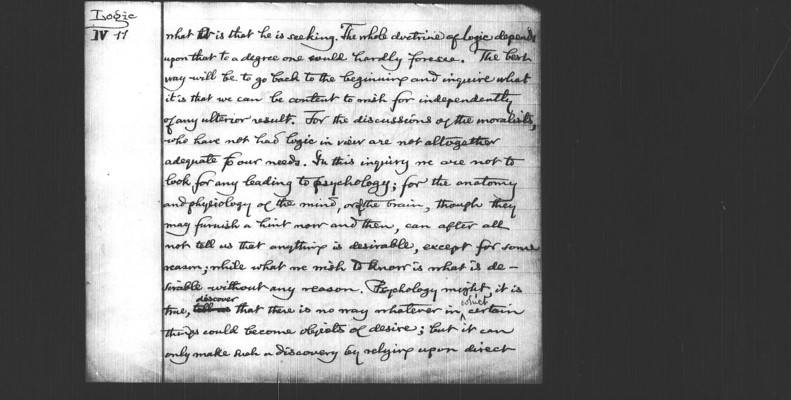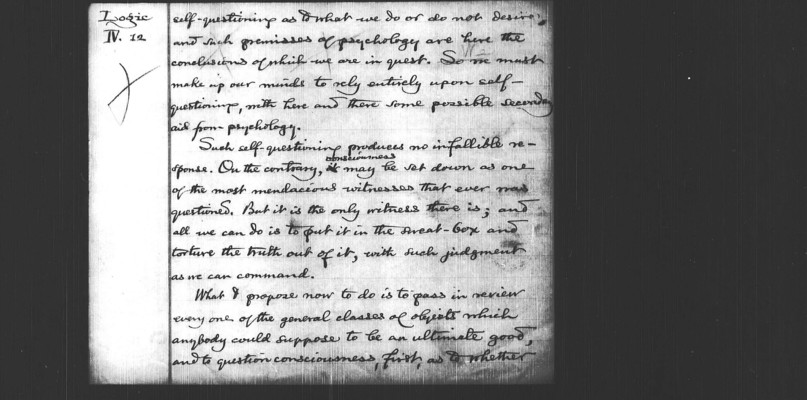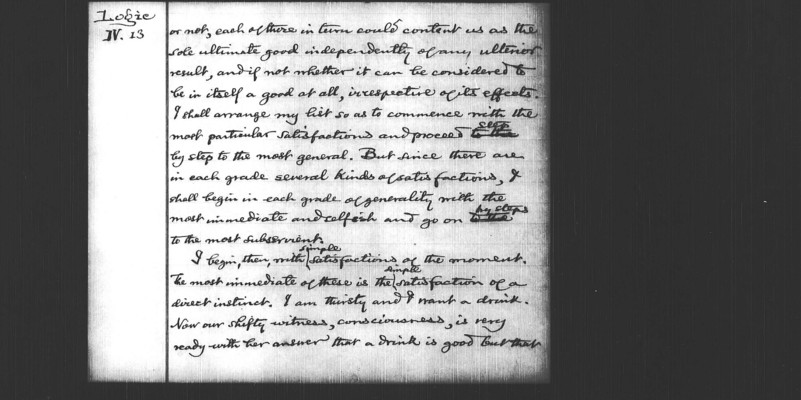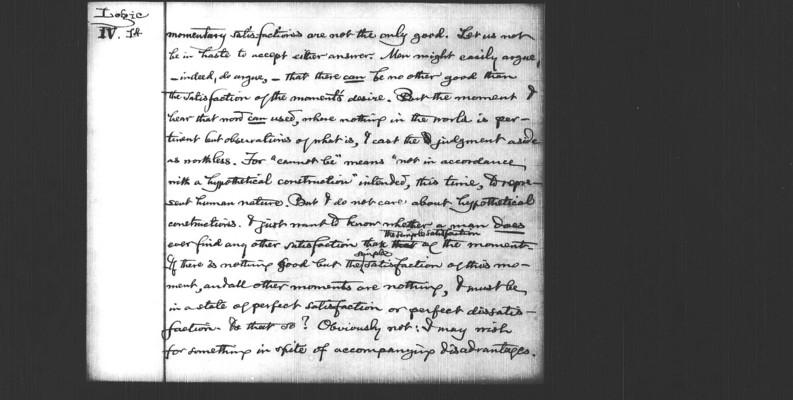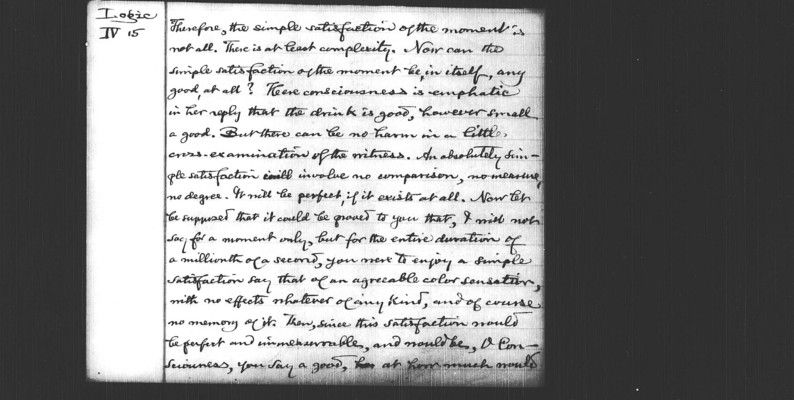Pages
11
Logic IV 11 what is that he is seeking. The whole doctrine of logic depends upon that to a degree one would hardly foresee. The best way will be to go back to the beginning and inquire what it is that we can be content to wish for independently of any ulterior result. For the discssions of the moralists, who have not had logic in view are not altogether adequate for our needs. In this inquiry we are not to look for any leading to psychology; for the anatomy and physiology of the mind, or of the brain, though they may furnish a hint now and then, can after all now tell us that anything is desirale, except for some reason, while what we wish to know is what is desirable without any reason. Psychology might , it is true, discover that there is no way whatever in which certain things could become objects of desire; but it can only make such a discovery by relying upon direct
12
Logic IV. 12 self-questioning as to what we do or do not desire and such premisses of psychology are here the conclusions of which we are in quest. So we must make up our minds to rely entirely upon self-questioning, with here and there some possible secondary aid from psychology. Such self-questioning produces no infallible response. On the contrary, consciousness may be set down as one of the most medacious witnessess that ever was questioned. But it is the only witness there is; and all we can do is to put it in the sweat-box and torture the truth out of it, with such judgement as we can command. What i propose now to do is to pass in review every one of the general classes of objects which anybody could suppose to be an ultimate good, and to question consciousness, first, as to whether
13
Logic IV. 13 or not, each of those in term could contend us as the sole ultimate good independently of any ulterior result, and if not whether it can be considered to bein itself a good or all, irrespective of its effects. I shall arrange my list so as to commence with the most particular satisfactions and proceed step by step to the most general. But since there are in each grate several kinds of satisfactions, & shall begin in each grade of generality with the most immediate and selfish and go on by steps to the most subservient. I begin, then, whith simple satisfactions of the moment. The most immediate of these is the simple satisfaction of a direct instinct. I am thirsty and I want a drink. Now our shifty witness, consciousness, is very ready with her answer that a drink is good but that
14
Logic IV. 14 momentary satisfactions are not the only good. Let us now be in haste to accept either answer. Men might easily argue, -indeed, do argue- that there can be no other good than the satisfaction of the moment's desire. But the moment I hear that word can used, where nothing in the world is pertinent but observations of what is, I cast the judgement aside as worthless. For "cannot be" means "not in accordance with a hypothetical construction" intended, this time, to represent human nature. But I do not care about hypothetical constructions. I just want to know whether a man oes ever find any other satisfaction that the simple satisfaction of the moment- If there is nothing good but the simple satisfaction of this moment, and all other moments are nothing, I must be in a state of perfect satisfaction or perfect dissatisfaction. Is that so? Obviously not: I may wish for something in spite of accompanying disadvanatages.
15
Logic IV. 15 Therefore, the simple satisfaction of the moment is not all. There is at least complexity. Now can the simple satisfaction of the moment be, in itself, any good, at all? Keene consciousness is emphatic in her reply that the drink is good, however small a good. But there can be no harm in a little cross-examination of the witness. An absolutly simple satisfaction will involve no comparison, no measure, no degree. It will be perfect, if it exists at all. Now [lets] be supposed that it could be proved to you that, I will not say for a moment only, ut for the entire duration of a millionth of a second, you were to enjoy a simple satisfaction say hat of an agreeable color sensation, with no effects whatever of any kind, and of course no memory of it. Then, since this satisfaction would be perfect and immeasurable, and would be, a consciousness, you say a good, [at] how much would
